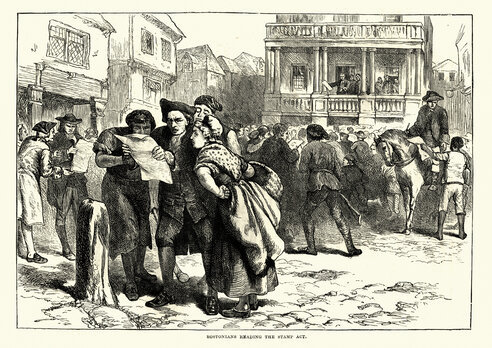Lesson Overview:
Students will warm up with a hypothetical in which they are asked to take on family expenses incurred by their parents before previewing vocabulary about economic concepts. After reading a background essay about taxation of the American colonies after the French and Indian War, students will work in groups to explain how they would resist British taxation.

